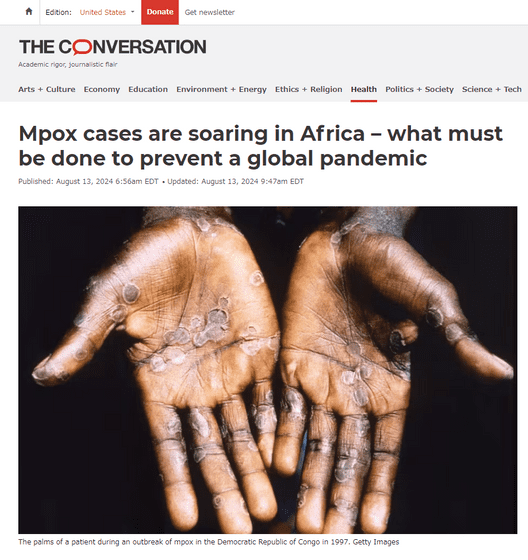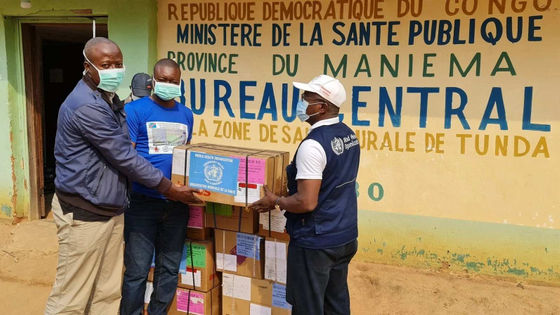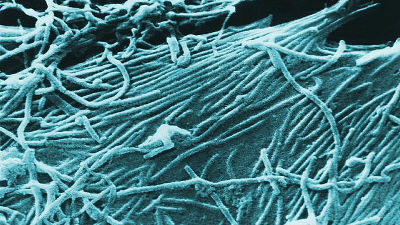WHO declares monkeypox emergency due to rapid spread of epidemic in Africa

On August 14, 2024, approximately two years after the 2022
WHO Director-General declares mpox outbreak a public health emergency of international concern
https://www.who.int/news/item/14-08-2024-who-director-general-declares-mpox-outbreak-a-public-health-emergency-of-international-concern
BREAKING: WHO declares mpox outbreak in Africa an international emergency | Live Science
https://www.livescience.com/health/viruses-infections-disease/breaking-who-declares-mpox-outbreak-in-africa-an-international-emergency
Mpox cases are soaring in Africa – what must be done to prevent a global pandemic
https://theconversation.com/mpox-cases-are-soaring-in-africa-what-must-be-done-to-prevent-a-global-pandemic-236609

WHO convened an International Health Regulations (IHR) Emergency Committee in the early hours of August 14 to review data submitted by WHO and experts from countries affected by EMPOX. The Emergency Committee recommended that the rapid spread of EMPOX constitutes a PHEIC, as EMPOX is increasing in African countries and may potentially spread beyond the African continent.
Based on this recommendation, WHO designated the Empox outbreak a PHEIC. In making the declaration, Director-General Tedros said, 'The emergence of a new Empox lineage, its rapid spread in eastern Congo, and the emergence of cases in several neighbouring countries are extremely worrying. It is clear that a coordinated international response is needed to contain these outbreaks and save lives.'
Dimier Ogoyna, chair of the 15-member emergency committee, said the committee was unanimous in deciding that the current outbreak was an emergency, with Congo reporting more Empox cases than ever before.

by
This is the second time that a PHEIC has been declared for EMPOCH. EMPOCH was first reported in humans in 1970 in the Congo, but was thought to be endemic to countries in central and western Africa at the time. However, in July 2022, the WHO declared a PHEIC after the virus spread rapidly in several countries where it had not previously been confirmed, mainly through sexual contact between male homosexuals. The PHEIC was declared over in May 2023 after the number of cases decreased.
However, the number of cases in the region, especially in Congo, has been steadily increasing throughout 2023, and by 2024, the number of cases had already exceeded 15,600, exceeding the previous year. Of these, 537 deaths had occurred.
The main reason for WHO to declare PHEIC was the emergence of a new lineage in addition to the increase in the number of cases. There are two lineages of Empox: 'Clade 1,' which has a relatively high mortality rate of 3-4%, and 'Clade 2,' which has a low mortality rate of 0.1%. So far, Clade 1 has not been detected outside of countries where Empox regularly spreads. In other words, it was Clade 2 that was confirmed to be spreading in Europe and the United States in 2022.
Until now, there have been few changes in the lineages of Empox, but in 2024, two new subgroups called 'clade 1a' and 'clade 1b' have appeared in clade 1, which carries a high risk of severe illness and death, and both are spreading in Congo. In addition, since mid-July, a total of more than 100 previously unreported clade 1b infections have been confirmed in four countries neighboring Congo: Burundi, Kenya, Rwanda, and Uganda, and clade 2 viruses are also spreading in countries such as Cameroon, Nigeria, and South Africa.
WHO is currently working to secure vaccines such as the Empox vaccine 'MVA-BN,' which is distributed in the United States as Jynneos, and the Japanese-made 'LC16 KMB,' in combination with establishing testing systems and implementing quarantine measures.

'Responding to Mpox requires a coordinated effort, not just in Africa but across the world, with all stakeholders working together to improve surveillance, diagnostics and other public health measures needed to prevent this problem,' Ogoyna said.
Related Posts:
in Note, Posted by log1l_ks







